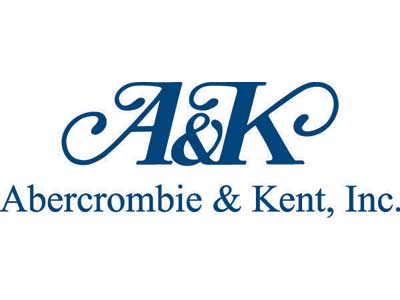Luxury travel faces ‘prolonged period of difficult trading’
Luxury travel firms have been advised to prepare for a prolonged period of difficult trading.
The warning came today from PricewaterhouseCoopers LLP, which forecast that “aspirational†holidaymakers will abandon the multi-billion pound sector in the downturn, forcing poor health for luxury travel.
As UK growth begins to recover in early 2010, luxury travel firms will be left stranded at recessionary levels until late 2011 or possibly 2012, as even their core customer base (high net worth individuals or HNWIs) become more nervous, PwC believes.
Despite optimistic sentiment early last year, luxury travel is not insulated to the recession as sales decline across the sector and individuals lose the feel good factor following consumer uncertainty and asset deflation.
Luxury travel providers are advised to ensure finances and working capital are in good order; liquidity is protected; treasury, financing, funding and pension exposures all re-examined.
Management should adopt a hands on approach to cash management and get as close to the workings of these businesses as possible, according to PwC.
Mergers and acquisitions activity is key in the current market and the need to exploit synergies is more important than ever, PwC added.
Overcoming financing hurdles could be largely avoided through a share for share exchange.
Guy Gillon, the firm’s parter corporate finance for travel, said: “One thing is clear, the downturn will not be a short term blip.
“Luxury travel businesses should prepare for a prolonged period of difficult trading. Act decisively and act now.
“Consumers will have their own strategies for managing in a downturn, in which big ticket items such as luxury trips will be sacrificed.
“Even as UK growth returns, in over a year’s time, and with it confidence it will take time for this to filter through into bookings. We could see potentially see growth in this sector stalling until the 2011/12 season.â€
While leisure tracks the performance of GDP, the luxury sector outperformed it threefold. Travel in this segment has increased significantly growing at around 10% a year to 2007 with UK spend on luxury holidays reaching around £5 billion a year, PwC calculated.
Gillon said: “In recent years the luxury travel market has outgrown GDP by a factor of three.
“The boom in perceived and actual affluence coincided with an increasing frequency of holidays, popularity of short breaks and the decline of the traditional two week holiday in the segment and drove unprecedented growth for luxury travel operators.â€
“But, there is no evidence to suggest that the sector will decline at a slower rate. After such a meteoric rise there will be inevitable shrinkage in this sector over the coming months and years.â€
The two principle types of luxury traveller are HNWIs – of which numbers have doubled globally since 1997 and stand at an estimated 10.1 million worldwide – and the “aspirational†consumer with perceived wealth rising from the availability of credit and house price inflation.
Gillin, commenting on the aspirational consumer, said: “Sentiment by these groups towards luxury holidays has changed over the latter part of 2008.
“House price deflation, lack of credit, employment uncertainty, and bonus reduction, make luxury travel an unaffordable discretion.
“This demographic will disappear from the luxury market and trade down in terms of holiday style, and stop taking additional short breaks.â€
On a macro level, a downturn should not necessarily cause undue concern to a HNWI, but the effects of this recession are exacerbated by the credit crunch.
The collapse of Lehman Brothers and other reputable institutions highlighted that no investment is without risk. Globally, wealthy individuals have been struggling to find a safe haven for their funds.
“Many HNWIs are sophisticated investors and will have some degree of leverage, often through more complex financial products are structures than are generally available to consumers,†said Gillon.
“Due to market volatility, HNWIs’ net worth on a day to day basis is unclear. These investors are as exposed to the economic uncertainty as much other segments of the financial market,†he explained.
“We anticipate HNWIs will adopt a wait and see approach as well as dropping extravagance and booking closer to departure dates. This will compound the downturn effects on the luxury travel sector.â€
by Phil Davies
 United Kingdom
United Kingdom United States
United States Asia Pacific
Asia Pacific












































EU airports bring back 100ml liquid rule
CLIA: Anti-cruise demos could cause itinerary changes in Europe
Co-pilot faints, easyJet flight issues ‘red alert’
Dozens fall ill in P&O Cruises ship outbreak
Woman dies after getting ‘entangled’ in baggage carousel